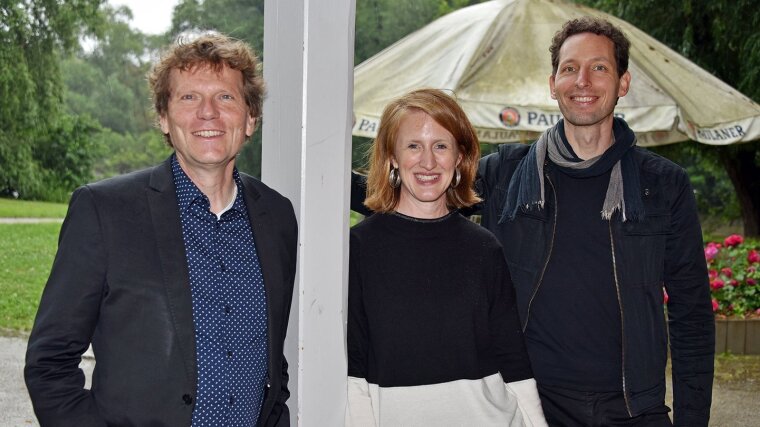
- Life
- Research
Published: | By: Stephan Laudien
Good news from the German Research Foundation (DFG): The Collaborative Research Centre (SFB) "Structural Change of Property"External link will be funded for another four years. The DFG has approved funding totalling around 13.4 million euros for the project run by the Universities of Jena and Erfurt.
"The continued funding will enable us to continue our interdisciplinary basic research and at the same time do justice to the highly topical and dynamic nature of property relations. Technological change and advancing digitalization, climate change and its consequences, global geopolitical changes and growing social inequality are causing and influencing fundamental changes in property," says sociologist Prof. Dr Silke van Dyk, spokesperson for the research network. Van Dyk succeeds Prof. Dr Hartmut Rosa (Jena/Erfurt), who previously acted as spokesperson. Together with Prof. Dr Tilman Reitz, they form the SFB's spokesperson team. The new funding phase starts at the beginning of January next year and runs until the end of 2028.
New questions, sharpened profile
The Collaborative Research Centre "Structural Change of Property" was launched in spring 2021 and comprises a total of 23 sub-projects from the social sciences and humanities as well as law and economics. "The sub-projects cover a wide range of questions relating to property. Research is also being conducted far beyond Germany and Europe, for example in India and China," emphasizes coordinator Christine Schickert.
The spectrum ranges from global issues such as the ownership of natural areas and mineral resources to everyday questions such as how property is dealt with in relationships. The continued funding from the DFG enables the sub-projects to investigate new topics and further sharpen the profile of the network. Current issues, such as the ownership of energy sources in the light of the war in Ukraine and the energy transition, are also coming into focus.
Christine Schickert says that the DFG's review has reconized the excellent work of the Collaborative Research Centre. This work naturally radiates outwards: For example, a book series named "Structural Change of Property" has been launched by Campus Verlag, in which several volumes have already been published. It began with a study by Jan Dirk Harke on Roman inheritance law and the volume "Nach dem Privateigentum? Güter, Infrastrukturen und Weltverhältnisse im Kapitalismus des 21. Jahrhunderts" ("After private property? Goods, infrastructures and world relations in 21st century capitalism"), co-written by Silke van Dyk, Tilman Reitz and Hartmut Rosa.
Research findings are also made public via a blog and a podcast series. A dedicated cinema series, "Property in View", which is organized in cooperation with the Kino am Markt cinema in Jena, takes the topic beyond the university and into the city. In cooperation with the Thuringian University and State Library in Jena, the "Neue Bibliothek des Eigentums" (New Library of Property) was also launched. "There you will find, for example, introductions to important basic texts and classics on property, from antiquity to the present day, as well as relevant audio and visual sources," says Christine Schickert.
Interdisciplinary research with partners at several locations
The Collaborative Research Centre "Structural Change of Property" brings together researchers from the social sciences, law, economics and history. In addition to the Universities of Jena and Erfurt, the consortium includes associated partners from the Freie Universität Berlin, TU Darmstadt, the University of Oldenburg, the Max Planck Institute for the Study of Societies and the Leibniz Institute for Research on Society and Space.